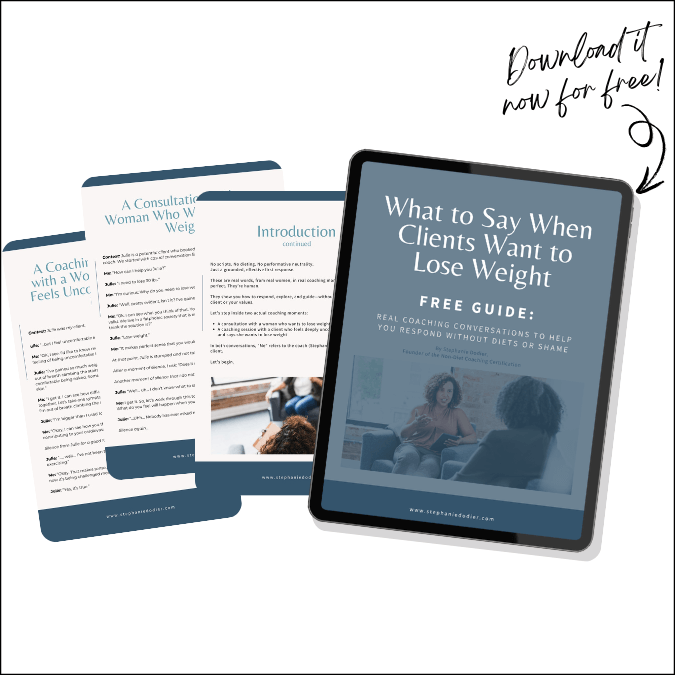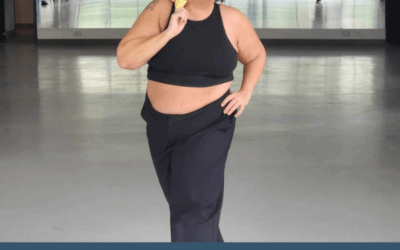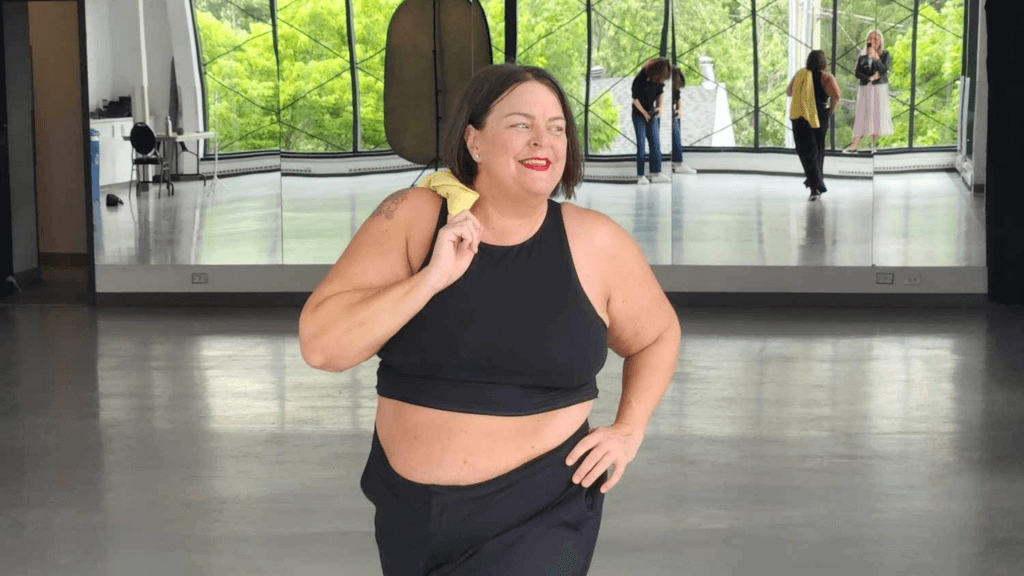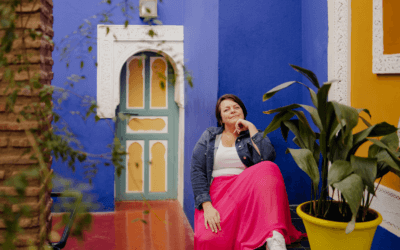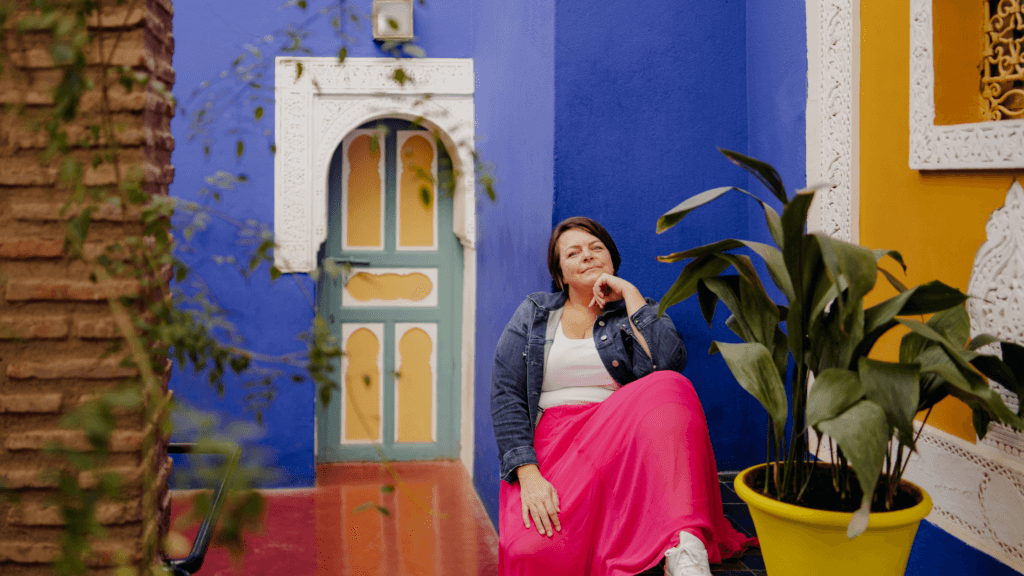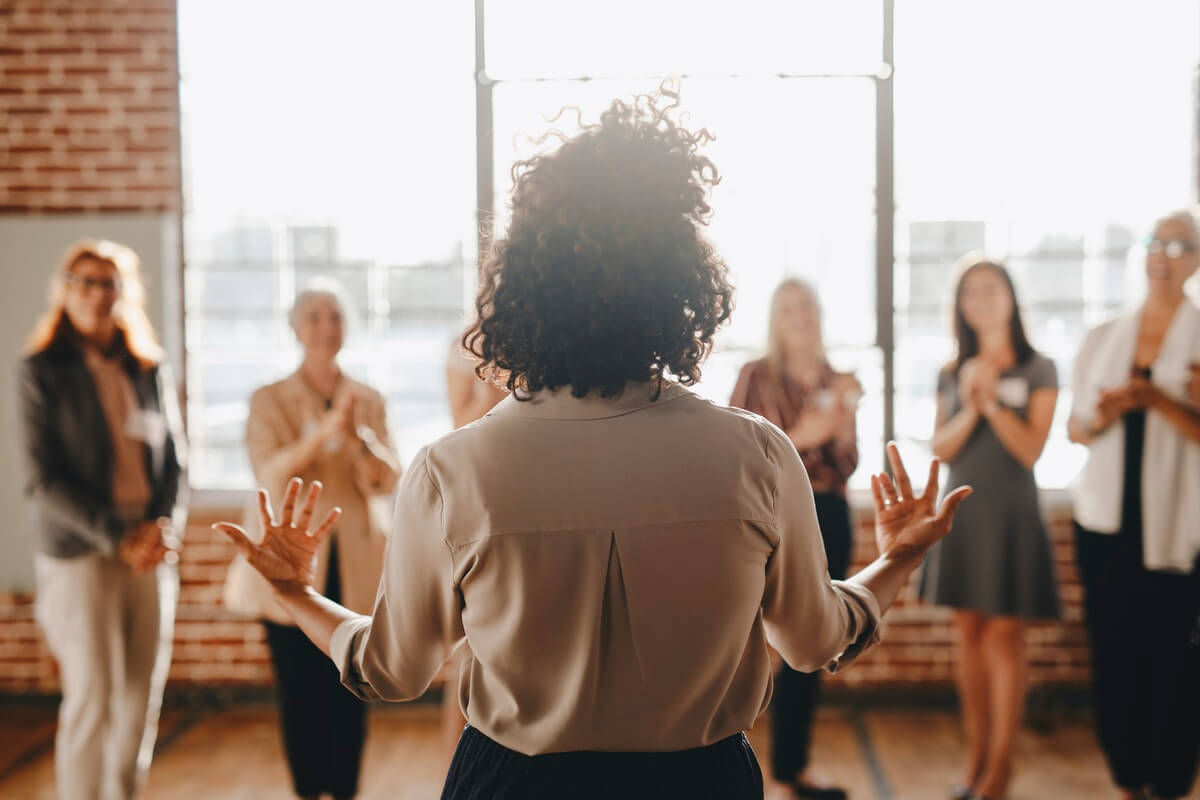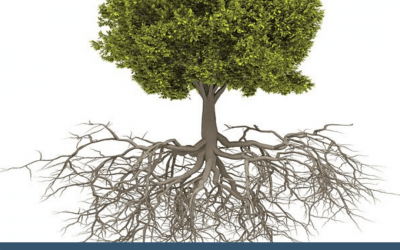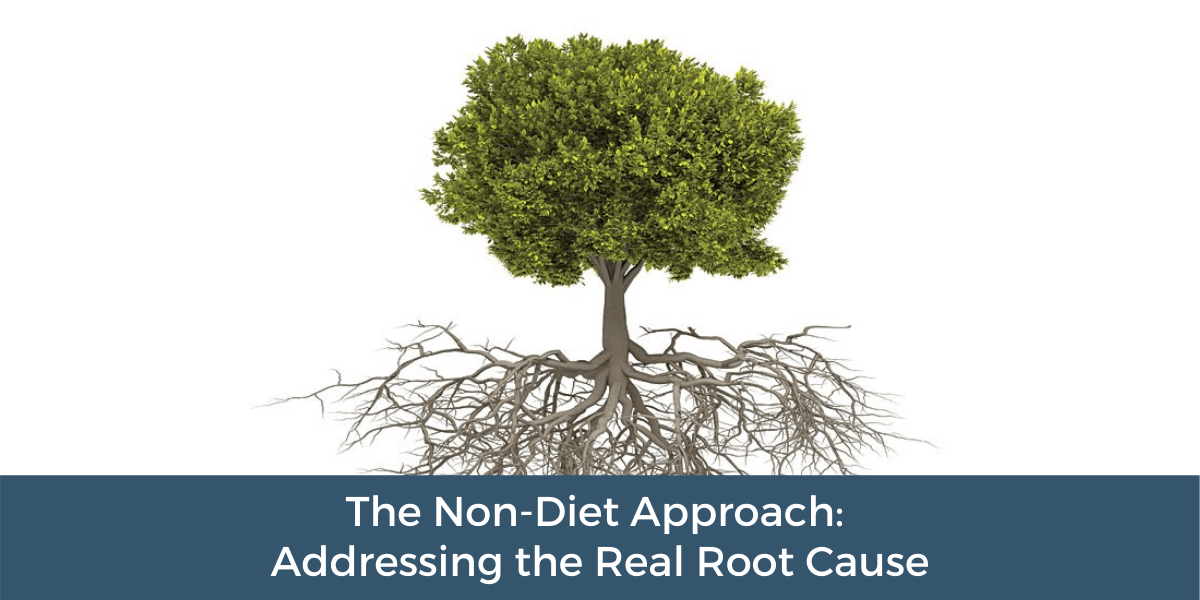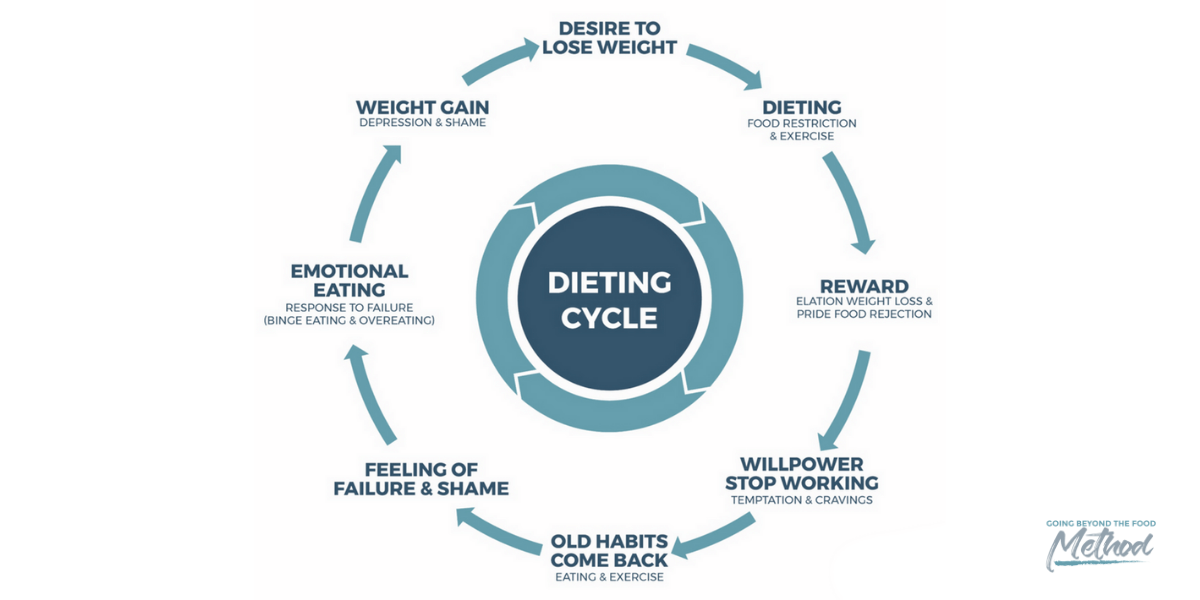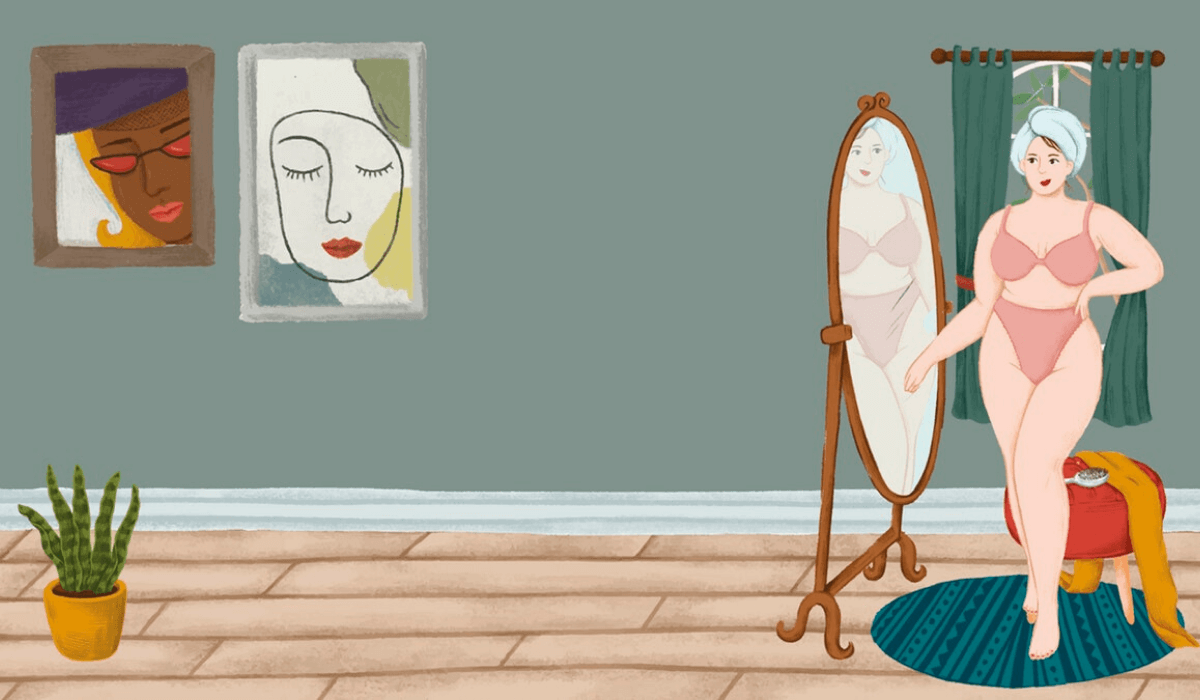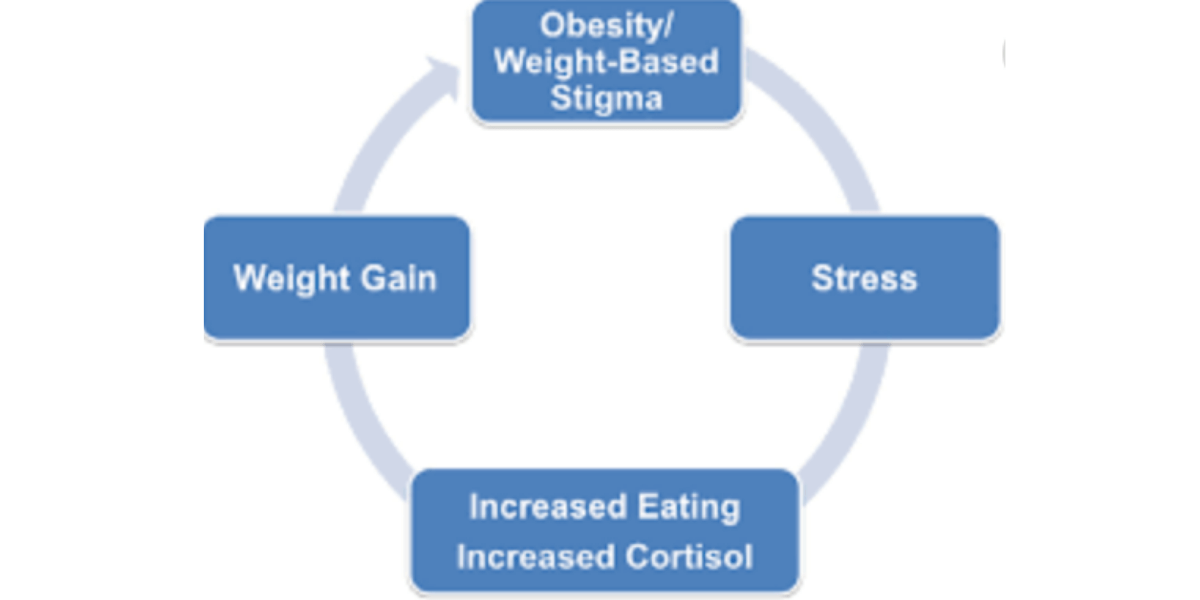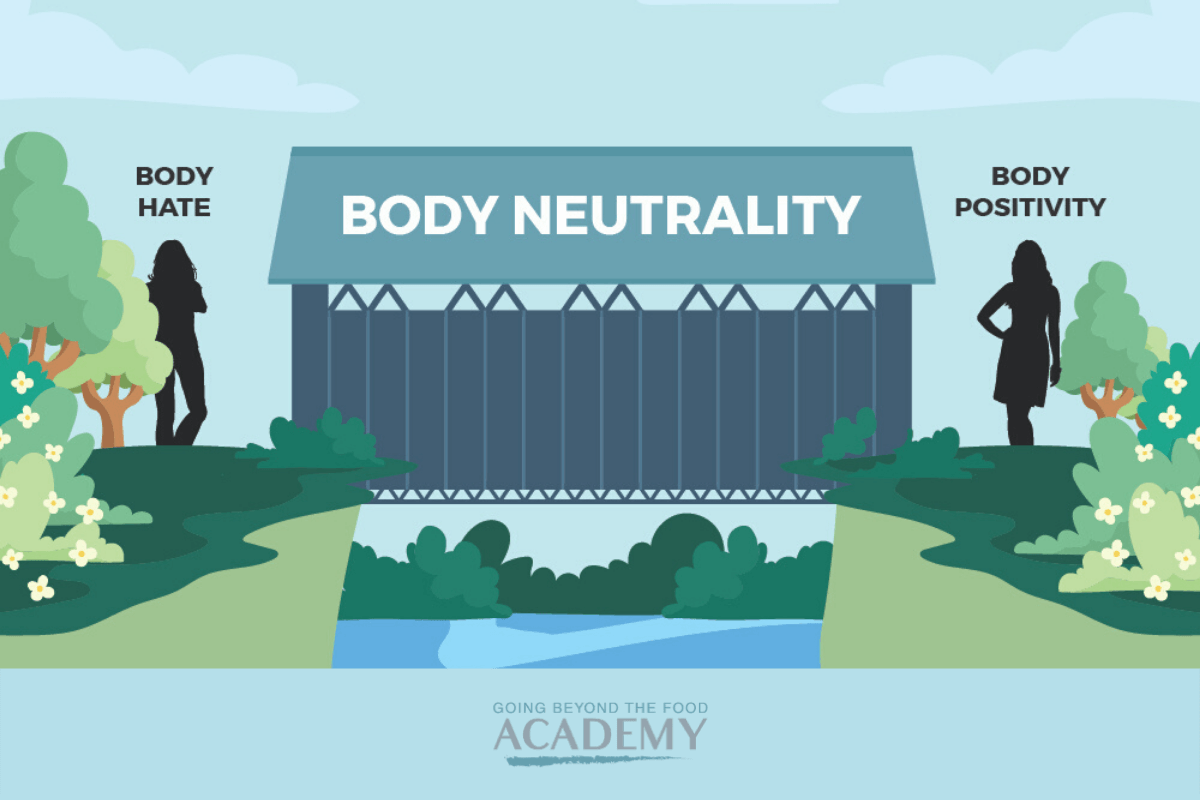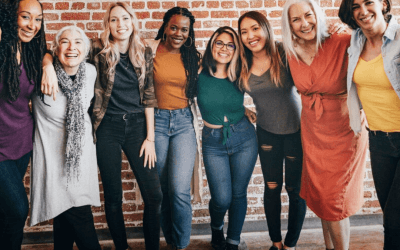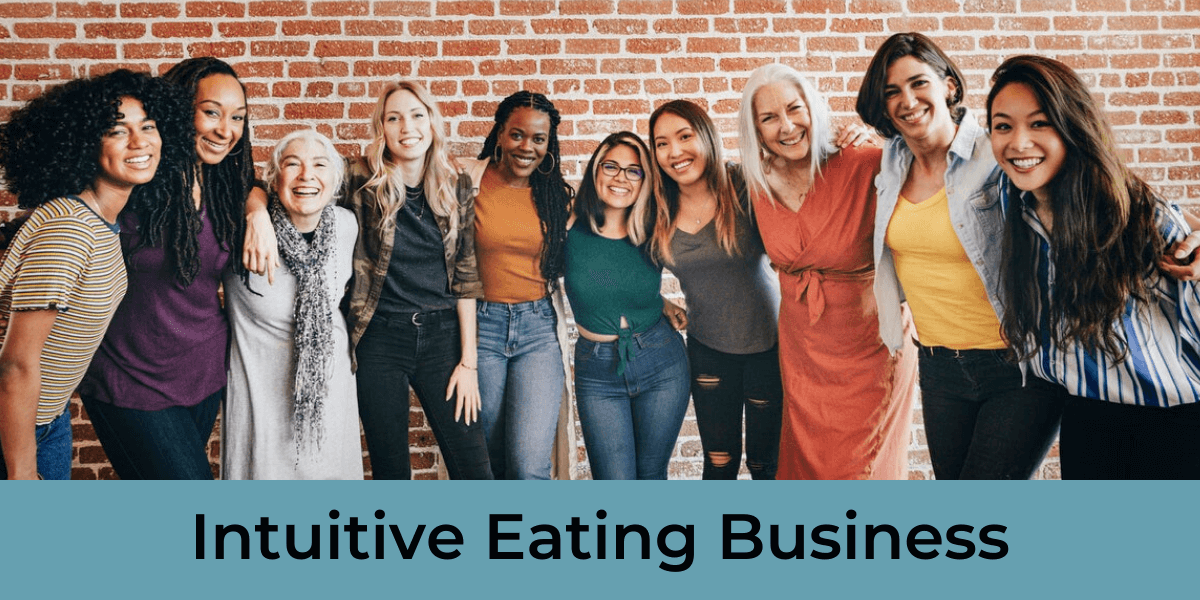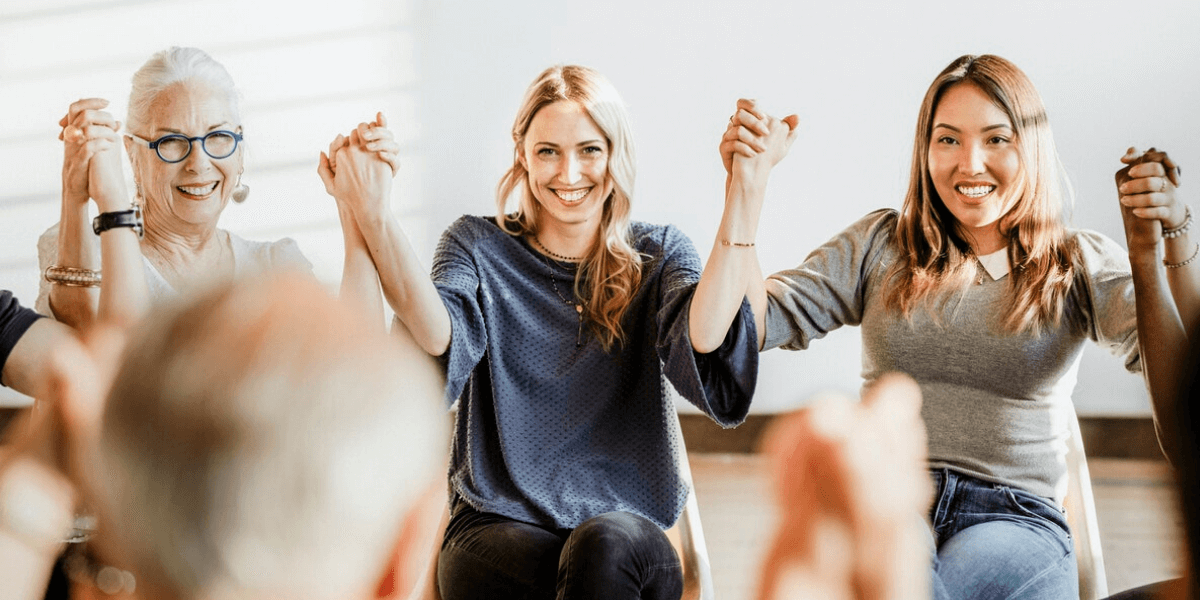I’ve always shared my journey to my followers, but only a few people know about my intuitive eating before and after story. Since I started eating intuitively, I’ve learned a lot of lessons that I’m eager to share. So I think it’s time for me to update my narrative.
If you’ve been on the fence about intuitive eating or you’ve been struggling with body image issues, these lessons will prove to be valuable to you.
But first, let me explain what intuitive eating is.


What does eating intuitively mean?
This is the most concise intuitive eating definition I can give you: “a self-care framework that uses your body’s internal cues of hunger, fullness, and satisfaction to guide your eating behavior.” It emphasizes self-care and attunement to one’s body cues.
Scientific research has proven intuitive eating to be healthy and safe. I have a blog post that describes all the intuitive eating health benefits. Read this article if you want to know how eating intuitively can help you become healthier.
As for me, eating intuitively has changed my life for the better. I’d like to share all the lessons I learned from my intuitive eating experience, hoping that they’ll inspire you to start your own intuitive eating journey.
Here is a quick rundown of the lessons I learned in my intuitive eating journey:
Lesson 1: Weight stigma is real and freakin’ powerful.
Lesson 2: Diet culture is a powerful motherfriggin’ monster but it’s optional.
Lesson 3: Repeat or evolve…It’s your choice.
Lesson 4: It’s beyond the food!
Lesson 5: The wellness diet and healthy body are BS
Lesson 6: You can’t hate yourself to happiness
Lesson 7: Intuitive eating is the gateway to health and happiness.
You can click the links or scroll down to go over the lessons and to learn about my intuitive eating before and after story in greater detail:
Lesson 1: Weight stigma is real and freakin’ powerful.
When I was 9 or 10 years old, my body was different. I was taller, heavier, and bigger than most kids in my school. My classmates bullied me…a lot. I didn’t know it yet, but I was dealing with weight stigma.
Then I grew up. The bullying became less frequent, and after some time, it stopped altogether. But there was a voice inside me, shaming me for the way I looked. For 25 years, I was brutal with myself because I thought that was the only way I could change.
I internalized the stigma that I dealt with as a kid.
Weight stigma, defined by the National Eating Disorders Association, is discrimination or stereotyping based on a person’s weight. Scientific research on weight stigma reveals that it has a huge effect on stress levels, hormones, and eating habits.
There are two types of weight stigma: externalized and internalized. Mind you, internalized weight stigma is more powerful than externalized weight stigma. Why? You can avoid the people who taunt you, but you’re with your body 24/7.
It was only when I overcame my internalized stigma that real transformation began. I became happier and more confident than ever before.
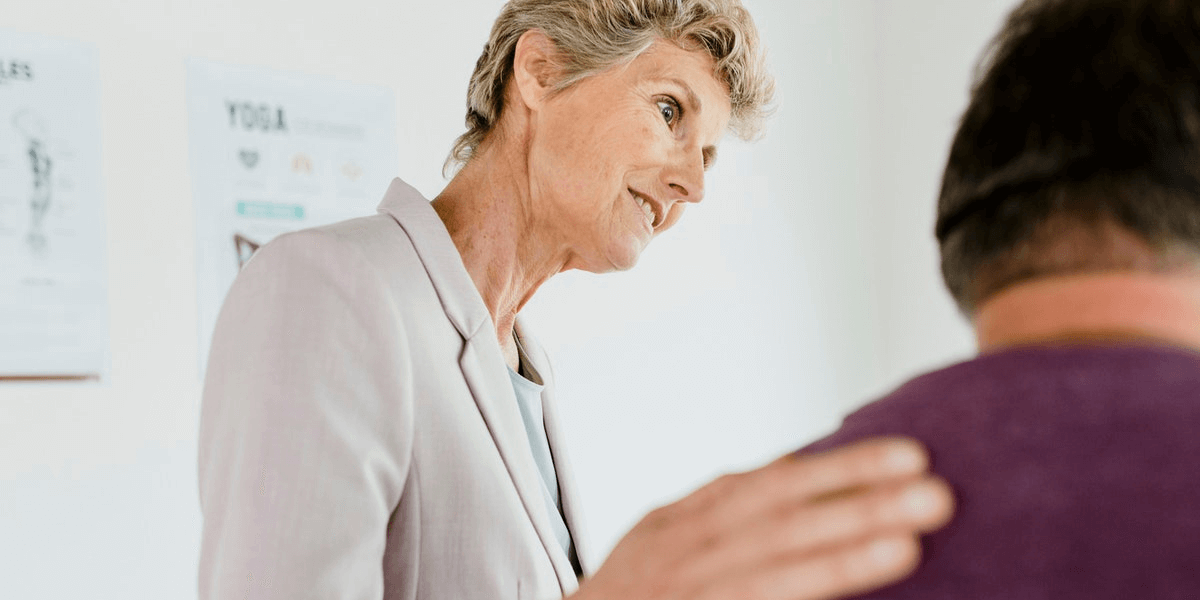

Lesson 2: Diet culture is a powerful motherfriggin’ monster but it’s optional.
The diet culture is an insidious monster that crept into my life when I was very young. It affected how I saw and treated myself. It also influenced my mother who, out of love and concern for me, sent me to Weight Watchers.
For 25 years, I was a slave to this oppressive monster. I tried one diet after another. Nothing worked. I thought there was something wrong with me and I needed to be fixed.
You might be wondering, “What the heck is diet culture?”
Diet culture is a system of belief that worships thinness and equates it with health and moral virtue. It makes you believe that you’re broken just because you don’t look like the “thin ideal.”
I had no clue that the diet culture existed. I thought that pursuing weight loss and thinness was the norm. When somebody presented me with the idea that I could actually live my life without aiming to lose weight or to become thin, it didn’t even sink in.
Fortunately, I came to realize that being part of the diet culture is a choice. Whether we want a thinner body or just lovingly accept ourselves–it’s completely up to us. The suffering that comes from wanting to be thinner is completely optional.
This led me to lesson number three…
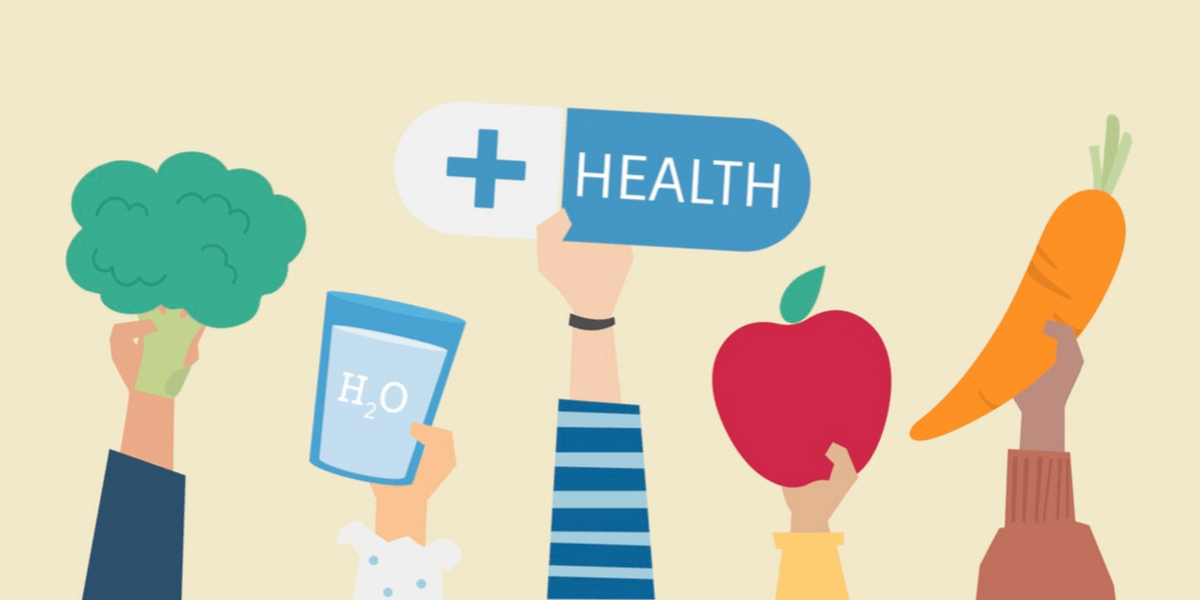

Lesson 3: Repeat or evolve… It’s a choice.
A significant turning point in my life happened when I was in my late 30s and at the peak of my corporate career. I was about to deliver a speech before a large crowd when I suddenly collapsed. Shortly after that, I found myself in the ER.
Subsequently, the doctor diagnosed me with five chronic conditions: high blood pressure, high cholesterol, anxiety, panic disorder, and depression. The doctors prescribed a medication for each condition.
Medication was the solution that these doctors had for me. But I decided to take a different route in my pursuit of health. I took responsibility into my own hands. However, I knew that I needed support, so I hired a coach.
It was during this time that I experienced a huge shift in mindset. I stopped being a victim and began to think that life happens for me instead of to me. I realized I could choose to either repeat my actions and have the same results. Or I could change my choices and make progress. Because I had the freedom to choose, I also had to be responsible for the consequences of my choices.
If you find yourself in a situation or condition that you don’t like, remember this: You can stay wherever you are and just keep repeating your old patterns. Or you can create new patterns of behavior and evolve.
Either way, it’s your decision and you’re responsible for it.
Lesson 4: It’s beyond the food!
Geneen Roth is one of the person who taught me the emotional and spiritual aspects of food. She is the bestselling author of Women, Food, and God I had the privilege of interviewing her in one of my emotional eating podcast episodes.
I remember the time I was reading Geneen’s book, at a poolside in Florida. One concept struck me so hard that I had what I now call a “holy shit” moment.
“Holy shit! It’s beyond the food!” my brain screamed.
This realization deeply changed my relationship with food. I became aware that I was using food to numb discomfort, because I hated being uncomfortable. Using food is just one of the behavioral patterns I developed when dealing with discomfort. There were other things, too, such as people-pleasing, perfectionism, etc.
These unhealthy behavioral patterns offered me a way for me to avoid change and stay comfortable. Realizing this, I became aware that it’s really not about the food.
Lesson 5: The wellness diet and healthy body are BS
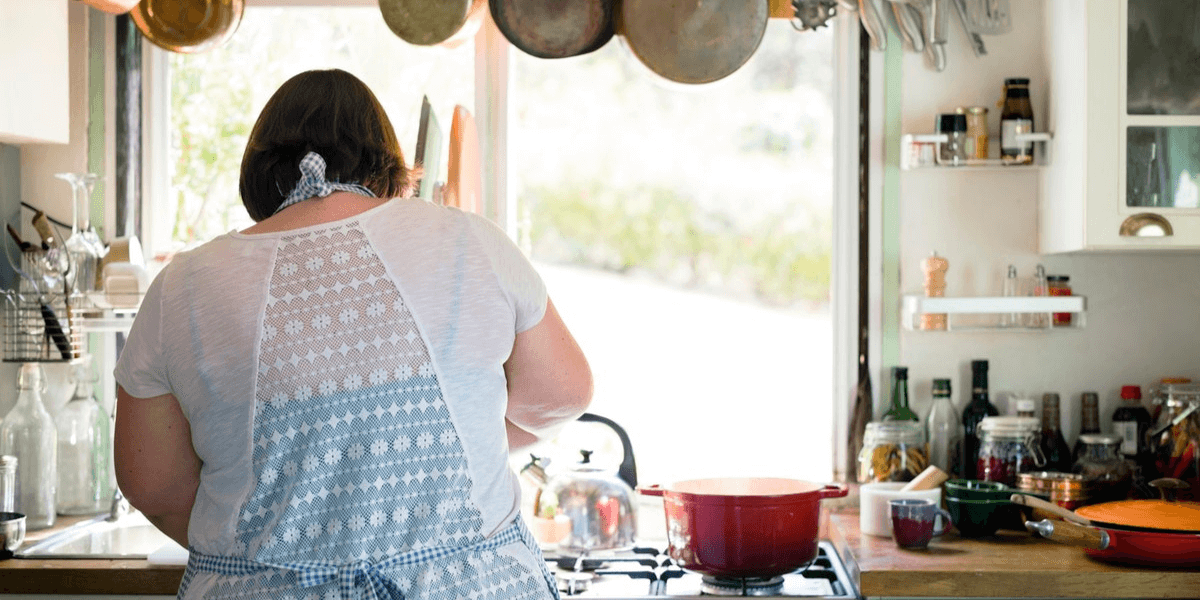

When I realized that I had to go beyond the food, I decided to stop dieting forever.
But then I learned about the paleo diet. Paleo doesn’t require you to eat less. You only have to make sure that everything you eat followed the guidelines.
I convinced myself that going on paleo wasn’t about losing weight. Instead, it was about balancing my hormones and fixing my body.
Then I encountered the Ketogenic Diet and decided to adopt it into my lifestyle.
The truth is I was still chasing weight loss, but I didn’t see that. Paleo and keto are deceptively packaged as tools for achieving health. But really, they’re products of the diet culture.
Because it was so restrictive, the keto diet sent me down the path of binge eating. My body was so angry with me for restricting food and chasing a thinner body, although I couldn’t admit it to myself.
Later, someone sent me a book called Health at Every Size. It pretty much says you can be healthy regardless of your weight. To me, it meant that everything that I was doing wasn’t going to get me where I wanted to be.
I was so offended that I couldn’t go beyond the first chapter.
It took a while before I finally accepted what it teaches. But after that, I felt a sense of freedom and relief.
I later learned that the pursuit of thinness has devastating consequences on mental and emotional health. In contrast, the Health at Every Size approach to eating emphasizes self-acceptance rather than weight loss.
Does it work? Research on Health at Every Size shows that this approach improves eating attitudes and practices, perception of body image, and health among other things.
(Read the Health at Every Size Manifesto to learn more about it.)
Lesson 6: You can’t hate yourself to happiness
After learning that I can be healthy regardless of my weight, I quit restricting food in any ways and I realized that I had to accept my body just as it is.
Now, body acceptance requires some work. This work is different from dieting. It’s not physically, emotionally, or mentally harder. It’s just different. But again, it’s uncomfortable.
I had to learn new tools to work through body acceptance–the mirror exercise, journaling, and breathing. I had to deal with the discomfort of being a beginner again. But that got me to this beautiful place of embracing body neutrality, which I now teach.
Body neutrality empowers you to embrace yourself as you are, including the parts you don’t like about yourself. Its focus is to avoid self-hate while simultaneously relieving you from the pressure of having to love your body. The goal is to respect and accept your body for what it is – and that’s it.
Lesson 7: Intuitive eating is the gateway to health and happiness.
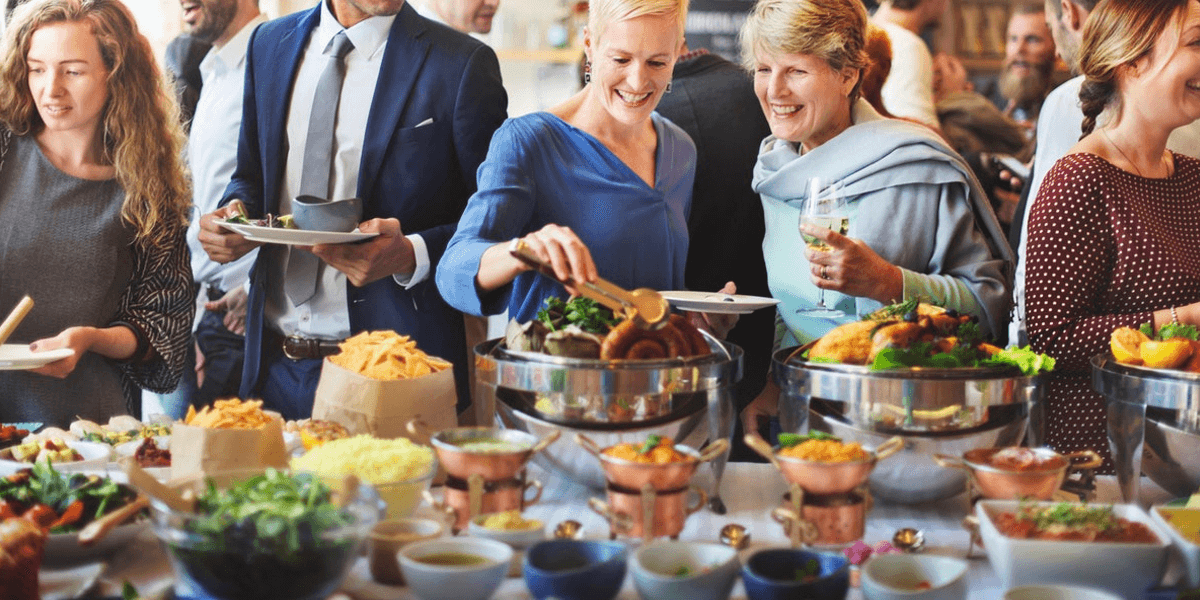

I encountered the concept of intuitive eating a few times. To be honest, at first, I wasn’t convinced that intuitive eating was any good. My colleagues sent me a book and some links to articles, but I refused to read anything about it. I simply said, “Nope, it’s not for me.”
Until Evelyn Tribole came into my life. Evelyn is one of the two coauthors of the ground-breaking book, Intuitive Eating. She is now my mentor. Through her, I learned that healing my relationship with food is necessary so I can make peace with my body.
I had the pleasure of interviewing Evelyn in my intuitive eating podcast. If you want to learn more about what she teaches about eating intuitively, listen to the episode.
Intuitive eating teaches you to respect your innate body messages such as hunger and fullness so you can have a healthy and respectful relationship with your body. This kind of relationship with my body is exactly what I’ve been enjoying since I started eating intuitively.
Wondering how to start eating intuitively?
We’re here to help! You can read my article that will walk you through the step-by-step process of integrating intuitive eating into your life.
Undiet Your Life is our beginner coaching program that will teach you how to become an intuitive eater,not just develop a healthy relationship with food, but also to embrace your current body. Go check us out.
Lesson 1: Weight stigma is real and freakin’ powerful. Lesson 2: Diet culture is a powerful motherfriggin’ monster but it’s optional. Lesson 3: Repeat or evolve…It’s your choice. Lesson 4: It’s beyond the food! Lesson 5: The wellness diet and healthy body are BS Lesson 6: You can’t hate yourself to happiness Lesson 7: Intuitive eating is the gateway to health and happiness.Lessons learned from intuitive eating


